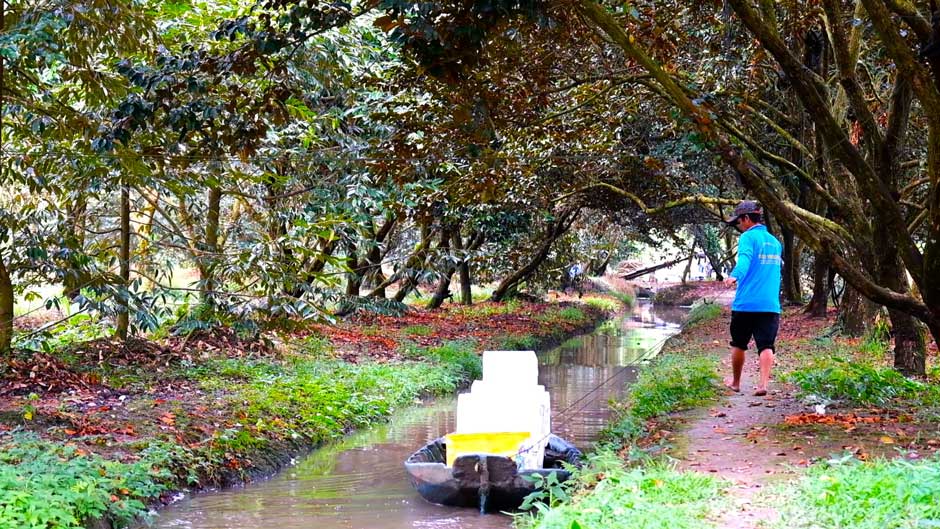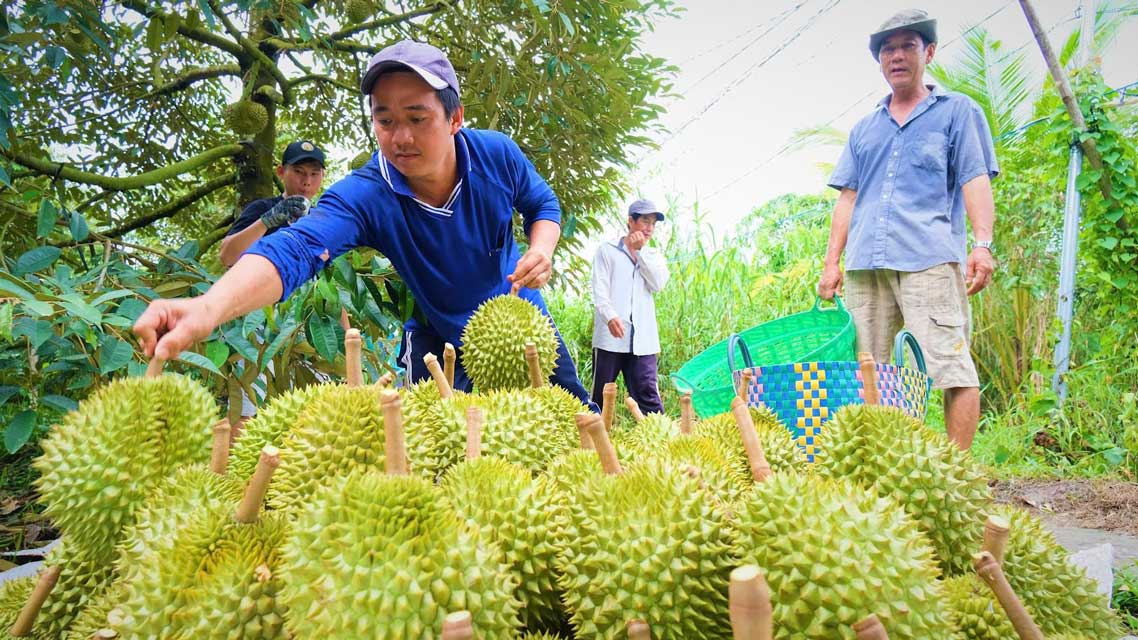Opportunities and challenges
In August this year, the Ministry of Agriculture and Rural Development (MARD) of Vietnam and the General Administration of Customs of China signed three protocols, including: Protocol on inspection, plant quarantine and food safety for frozen durian exported from Vietnam to China; Protocol on plant quarantine requirements for fresh coconuts exported from Vietnam to China and Protocol on quarantine and health requirements for farmed crocodiles exported from Vietnam to China.
These are important protocols that pave the way for the export of fresh coconuts, frozen durians and crocodiles to China.

Dr. Dang Kim Son - former Director of the Institute of Policy and Strategy for Agricultural and Rural Development - commented that in recent times, Vietnam in general and the Mekong Delta in particular have created a miracle in agricultural exports. Year after year, our country has increased its agricultural exports, from rice, seafood to fruits.
However, the challenges that the Mekong Delta is facing today are that all resources are gradually shrinking; risks in agricultural production are increasing due to the impact of natural disasters; the disruption of the global value chain; small-scale farmers are loosely linked to businesses, connected to distant markets, and especially the lack of infrastructure, transportation, logistics, and wharfage. If there is no breakthrough solution, it will hinder the production and export of agricultural products in the Mekong Delta in the future.
Applying technical advances
According to Dr. Dang Kim Son, currently, technical advances in processing and storing agricultural products play an important role in promoting production and export activities. Recently, a very special technical advance - frozen fruit can be said to have created a great opportunity for the consumption of valuable agricultural products.
“With this technical advancement, we can enhance preservation, processing, quality control, and control of goods right from the beginning. This will significantly increase the quality and value of future export goods, especially high-value but perishable goods such as fruits, seafood, and livestock. Businesses and farmers should seize this opportunity,” said Dr. Dang Kim Son.

From the Protocol on exporting frozen durian, Mr. Tran Thai Nghiem - Deputy Director of the Department of Agriculture and Rural Development of Can Tho City - said that this will be one of the solutions to limit congestion in the process of consuming fresh fruit for businesses and farmers.
Accordingly, the city’s agricultural sector expects the direction of frozen fruits to promote the processing and preservation industry not only for durian but also for other agricultural products to expand consumption and export channels. And to seize this opportunity, businesses need to continue researching solutions for deep processing.
On the farmers' side, Dr. Dang Kim Son suggested that it is necessary to form raw material areas, linked with processing facilities, and take advantage of good scientific and technical advances in freezing to enter new markets.











